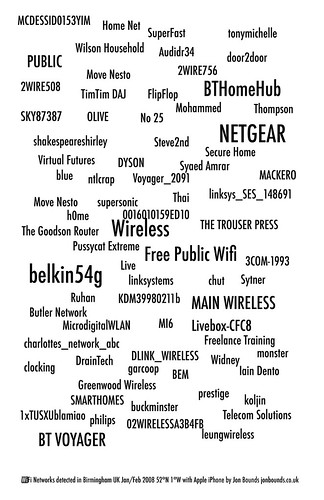That’s the question thrown my way by Simon Peters at Common Purpose as this international leadership charity sets out to start it’s own blogging experiment. So why?
 Leaders need followers and followers need to know if they can trust you.
Leaders need followers and followers need to know if they can trust you.
A blog helps establish how trustworthy you are. It is a patient process, but, over time, if you write about the things you care about, link to the people who make sense to you, share questions online it paints a picture people can trust. It reveals who you are and why your vision makes sense. Of course if you tell your PA to do that for you it won’t work.
Leaders not only need followers, they need help.
Problems are usually best solved collaboratively. Collaboration is at its best when there is a diversity of opinions available. Blog about a problem you need to solve and the network you can establish around your blog will help you solve it. This is leadership in a world where hierachy is often the block to progress. Blogger Tessy Britton (link) can help me explain this:
the amount of technical information is doubling every 2 years, there were 3000 books published today, 2.7 billion searches performed on google this month . . .
Which is why computers are no longer optional… and why social network sites have literally exploded. We need to manage all the connections and all the information. The truth is really quite profound. We cannot manage without people networks, where we have connections with lots and lots of other people. And with those connections can come a measure of confidence. Perhaps we don’t need to be trying desperately to absorb so much information, perhaps it is OK to let others know lots of other things we don’t . . . but are only a click or a call away? We need people, and we need to build trusting relationships with those people in order to collaborate.
I think that that this is a truly wonderful thing.
Why else? Followers are clear about what they expect from their leaders, and the openess it takes to blog well can encourage some of those qualities.
In 2005 the DTI commissioned leadership company Caret to carry out the biggest ever survey of followers. They asked 5,000 people what they looked for in their leaders. The results (link here) were interesting, although not surprising:
An inspirational leader ….
• Has an ability to manage and engage people: they listen, involve, trust, appreciate, have fun; they care and involve everyone.
• Is honest, open, respectful, committed, focused, determined, courageous, humble, patient, vulnerable, energised, reflective, passionate, non-jargony, curious.
• Has a novel outlook: looks laterally, bends rules, loves pressure, is highly accessible, strongly visionary, and customer-obsessed.
These are the things followers said would inspire them.
Qualities many of us show in everyday life, with our friends and family, but we can tend to put them aside when we have to function as part of an organisation.
Blogging helps you find your voice, it helps you understand what you naturally believe in, and then challenges those beliefs. It exposes you to a global set of ideas and examples riddled with novelty and invites you to join a conversation, sometimes leading, sometimes following; sometimes learning, sometimes teaching.
It makes you accessible, encourages you to communicate in plain language, it requires you to stick your kneck out, expose yourself and learn from doing so. It works best when you are patient about building a valued network, curious about others people’s ideas, generous with your own.
See any parallels?
Disclosure. I’m a Common Purpose “graduate” (I don’t like that term) from Birmingham in 2000 and 2003. I’m also an associate consultant with Caret – the DTI sponsored research was completed before I joined.
Image thanks to pinkbetty on Flickr.
Update: April 17th 2008. You might be interested in this new blog on leadership.
 Leaders need followers and followers need to know if they can trust you.
Leaders need followers and followers need to know if they can trust you.
